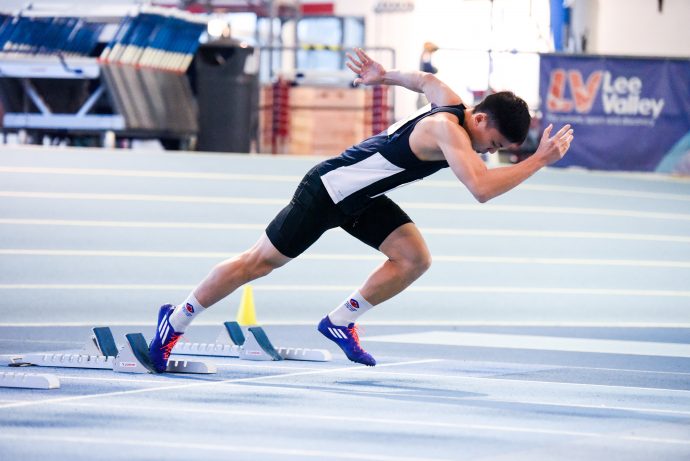Nutrition
Let’s say your event starts at 7 p.m. This means you should be eating no later than 5 o’clock, at which point you’re probably finishing work. We recommend preparing your food beforehand, because that means you know exactly what you’re putting into your body. Focus on high-energy, low-fibre foods that are easy to digest – maybe white bread with almond butter and banana. It’s important to know what works for you, both in terms of quantity and nutritional value. Earlier in the day, you should eat a good breakfast and a reasonable lunch to keep your energy levels topped up.
Focus on high-energy, low-fibre foods that are easy to digest.
Drink plenty of water the day before your event, and stay hydrated throughout race day. If it’s hot, remember to boost your electrolyte levels with a healthy sports drink or some coconut water.
One common problem with an evening race is not knowing what to eat afterwards. If the event finishes at half eight or nine, you’ll want to make sure you don’t eat too much before bed. We recommend finishing your day with a medium-sized meal consisting of easily digestible foods such as eggs and grains. Then again, no-one’s going to judge you for having a celebratory drink or pizza!
Sleep
Sleep might not seem as important for an evening race, but it’s always crucial. See our tips on how to improve your sleep quality. If you’re an effective napper, try to fit in a twenty-minute snooze during the afternoon for an extra energy boost.
To ensure a good night’s sleep after the event, make sure to avoid caffeinated recovery drinks and greasy food.
Mental Preparation
An evening race gives you a lot of time to get nervous, so you need to work out how to ****maintain a positive attitude. You could try breathing exercises, race visualisation, or simply focusing on your work to lead your mind elsewhere! Make sure to arrive in good time for the event so that you avoid unnecessary stress.
Physical Preparation
First and foremost, you need to be used to competing this late. If you can’t test the course beforehand, try some race-pace workouts at a similar time of day.
If this is one of your main races of the season, remember to gradually decrease your mileage (you may look for a slightly positive TSB in Wattson Blue) in the weeks leading up to the race, otherwise you may not perform your best.


The usual tips apply for your warm-up – start gently, incorporate any dynamic stretches you need, then pick up the pace.
Conclusion
Evening races offer some unique challenges in terms of how you prepare, perform and recover. Getting into the right habits is crucial, so make sure both your body and mind are familiar with the demands of this format. Good luck from Wattson Blue!
Wattson Blue empowers you to find the right balance between stress and recovery to maximise your long-term performance. It is available to download on iOS and Android.
